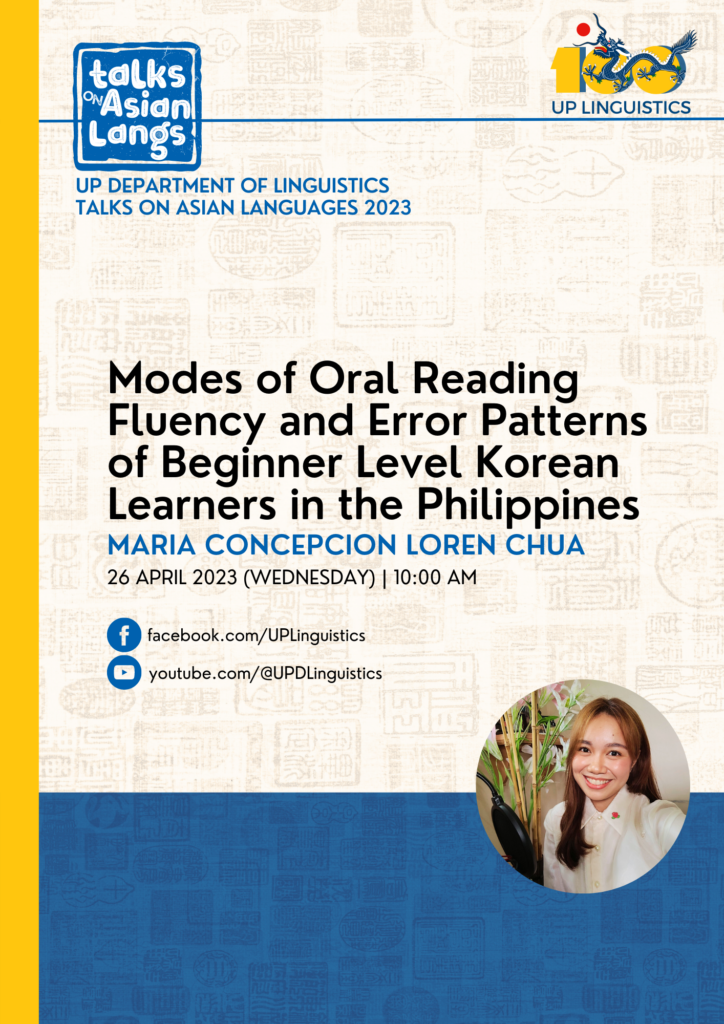Talks on Asian Languages #01: Modes of Oral Reading Fluency & Error Patterns of Beginner Level Korean Learners
- Date: 26 Apr 2023 | 10:00 AM - 11:30 AM
- Venue: Online Livestream
Talks on Asian Languages
Modes of Oral Reading Fluency and Error Patterns of Beginner Level Korean Learners in the Philippines
by Maria Concepcion Loren Chua
Senior Lecturer
26 April 2023 (Wednesday) | 10:00AM
Facebook & YouTube Livestream
About the Lecture Series
The Talks on Asian Languages (TAL) Series serves as an avenue for the faculty members and alumni of the UP Department of Linguistics, including colleagues from other institutions teaching Asian languages, to share their research about second language learning and acquisition. Each lecture will focus on how linguistics and pedagogical trends can be employed and adapted to fit the learning needs of Filipino students.

ABSTRACT
This study categorized the error patterns in the loud reading process by evaluating the reading fluency of 40 beginner-level Korean learners in the Philippines. ‘Reading fluency’ or ‘oral reading fluency’ refers to the ability to read a text aloud with natural intonation, accurately, with proper pauses, and at an appropriate speed. When reading fluency and automatization is acquired, the brain focuses on understanding the text and helps the comprehension process (NICHD, 2000). Therefore, it is necessary first to study the reading fluency status and error patterns of students learning Korean as a foreign language so that educators can plan and implement necessary interventions.
This study examined beginner Korean learners’ reading fluency levels and error patterns in the Philippines, focusing on the following research issues. First, the reading fluency level of the subjects was measured, and its modes were verified. The subjects’ oral reading process was recorded to measure reading fluency. Reading fluency was measured by speed, accuracy, and prosody. Second, the error patterns of beginner-level Korean learners in the Philippines were identified.
Analysis results showed various levels and modes of reading fluency among learners even though they are at the same beginner level. The average rate of the participants’ reading speed was below the average reading speed of native Korean grade one elementary school students. However, the results showed that the accuracy level of most of the study participants is satisfactory to excellent. In terms of prosody, research findings show that the majority of the participants have low-level prosody. On the other hand, analysis of the error patterns of the study participants showed that the Mispronunciation frequency was the highest regardless of the level of accuracy. On the contrary, Self-correction frequency increases together with the level of accuracy. Finally, this research proposes individualized reading fluency training methods suitable to the characteristics of each category.
Keywords: Reading Fluency, Oral Reading Fluency, Error Patterns, Error Analysis, Miscue Analysis, Loud Reading Process, Korean Education as a Foreign Language, Beginner Level Korean Learners
